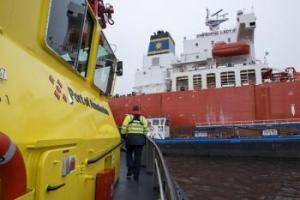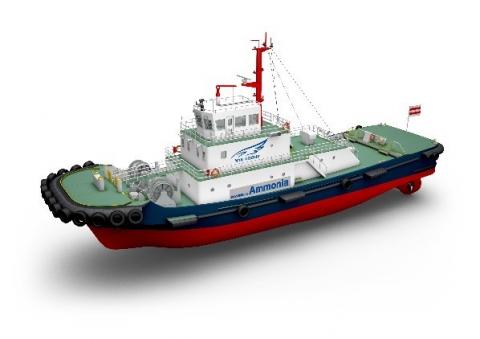Harbour Master
Harbour Masters
Worldwide there are approximately 3,000 merchant ports and the work of the Harbour Master can vary widely from country to country and from port to port even within the same country.


It was reported early in July from Tokyo that ClassNK has released its Guidelines for Ships Using Alternative Fuels (Edtion 2.0) which sets forth safety requirements for ships fuelled by methanol, ethanol, LPG, and ammonia. In particular, specific requirements for ammonia-fuelled ships have been added to provide guidance for the design of alternative-fuelled ships, it is understood.
These guidelines comprehensively describe safety requirements for methanol, ethanol, and ammonia-fuelled ships. Taking into account the risks posed by the use of alternative fuels against ships, crews, and the environment, they specify requirements for installation, controls, and safety devices to minimise those risks.
The recently published Edition 2.0 reflects the ClassNK’s expertise for ammonia, which is toxic to humans and corrosive to materials, gained through R&D in partnership with the industry and its design review experiences based on the guidelines.
Specific requirements, including isolation distances from areas where there is a risk of ammonia release to areas that should be protected, and safety design concepts to design engines and boilers using ammonia fuel have been added to ensure the safety of ammonia-fuelled ships.
These guidelines are available to download via Guidelines of ClassNK’s website for those who have registered for the ClassNK My Page to be found in the right hand column here:
https://www.classnk.com/hp/en/index.html
Pic caption with credit:
In mid-July ClassNK issued an Approval in Principle (AiP) for an ammonia-fuelled tugboat (A-Tug) jointly developed by Nippon Yusen Kabushiki Kaisha (NYK Line) and IHI Power Systems Co., Ltd.
Ammonia is expected to be used as ship fuel for decarbonisation since it does not emit CO2 when combusted. Meanwhile, adequate safety measures are imperative as it is known that ammonia is toxic to humans and corrosive to materials.
Illustration courtesy of NYK Line ©.
Founded in 2017, MarineLabs delivers high-resolution, real-time, and historical wind, wave, and weather data, as well as hyper-local 10-day forecasting, from a growing network of cloud-connected, rugged sensor nodes.
The International Harbour Masters Association (IHMA) and the Port of Rotterdam Authority are pleased to announce the 15th International Harbour Masters Association Congress, to be held from 09–12 June 2026 at Theater Zuidplein in Rotterdam.